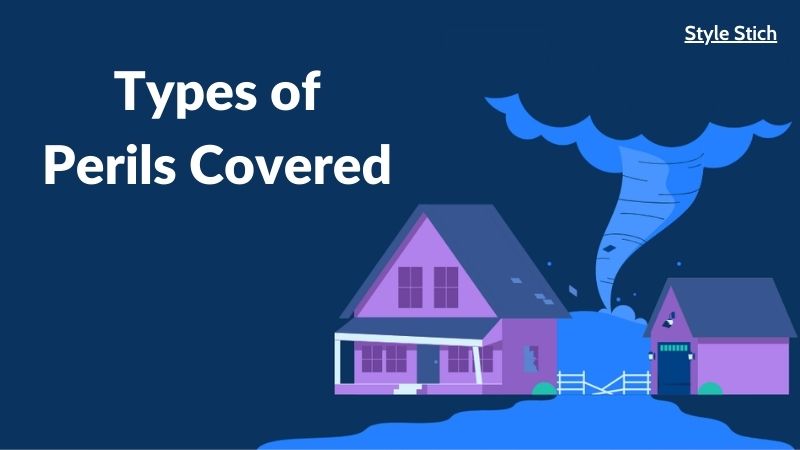Does Homeowners Insurance Cover Storage Units? What You Need to Know
Homeowners insurance serves as a safety net, protecting your home and personal belongings from unexpected events. But what about items stored away from home, such as in storage units? Does homeowners insurance cover storage units? The answer isn’t always straightforward, as coverage can vary depending on your policy and the circumstances. In this comprehensive guide, Stylestich will delve into the intricacies of homeowners insurance coverage for storage units, addressing common questions and providing valuable insights.
Does Homeowners Insurance Cover Storage Units?
One of the most common questions homeowners have is, “Does homeowners insurance cover storage units?” The answer is, it depends. While homeowners insurance typically covers personal belongings, even when they’re stored off-premises, such as in a storage unit, there are several factors to consider.
Location Matters:
The location of the storage unit plays a crucial role in determining coverage. If the storage unit is within the same state or country as your primary residence, your homeowners insurance policy may extend coverage to items stored there. However, if the storage unit is located in a different state or country, coverage may be limited or nonexistent. It’s essential to review your policy or consult with your insurance provider to understand the extent of coverage based on the storage unit’s location.
Understanding Coverage Limitations:
While homeowners insurance may cover items stored in a storage unit, there are often limitations on the coverage amount. It’s essential to review your policy to determine the maximum coverage provided for items stored off-premises. If your belongings exceed this limit, you may need to purchase additional coverage to ensure adequate protection.

Types of Perils Covered:
Homeowners insurance provides coverage for various perils such as fire, theft, vandalism, and specific natural disasters. Nevertheless, the extent of coverage for items stored in a storage unit may vary based on individual policies. It’s imperative to thoroughly examine your insurance policy to ascertain which events are covered and the conditions under which coverage applies. By understanding the terms and conditions of your policy, you can ensure adequate protection for your belongings stored outside your home.

Additional Coverage Options:
When safeguarding valuable possessions or items that may not receive full coverage under your standard homeowners insurance, it’s advisable to consider purchasing supplementary coverage. This can entail acquiring a rider or floater tailored to safeguard high-value items like jewelry, collectibles, or electronics. Supplemental coverage investments guarantee comprehensive protection for your belongings, whether they’re housed at home or stored in external units. By taking proactive steps to secure additional coverage, you can rest assured that your valuable assets are adequately shielded against unforeseen circumstances or losses.
Documentation and Inventory:
Maintaining a detailed inventory of the items you have in storage is essential for filing a claim with your homeowners insurance provider. Keep records of all valuable items, including receipts, appraisals, and photographs. In the event of a loss, having thorough documentation will streamline the claims process and help ensure that you receive fair compensation for your belongings.

Understanding Exclusions:
Although homeowners insurance offers comprehensive coverage for personal belongings, certain items may be subject to exclusions or limited coverage. High-value items like expensive jewelry, artwork, antiques, or business-related equipment are often excluded. It’s essential to thoroughly review your policy to identify any exclusions and evaluate whether additional coverage is necessary to adequately protect these valuables. By understanding the limitations of your policy and considering supplemental coverage options, you can ensure comprehensive protection for your prized possessions against potential risks or losses.
Navigating Claims:
In the unfortunate event that you need to file a claim for items stored in a storage unit, it’s essential to understand the claims process. Contact your homeowners insurance provider as soon as possible to report the loss or damage. Provide them with all relevant documentation, including inventory lists, receipts, and photographs. Your insurance provider will assess the claim and determine the appropriate course of action based on your policy coverage.
Risks of Underinsurance:
Underestimating the value of your belongings or failing to purchase adequate coverage can leave you vulnerable to financial loss. In the event of theft, fire, or other covered perils, insufficient insurance coverage may not fully compensate you for your losses. To avoid this risk, regularly review your homeowners insurance policy and consider adjusting your coverage limits as needed to reflect changes in the value of your belongings.
Conclusion:
“Does homeowners insurance cover storage units?” It’s a question that many homeowners ponder when considering the safety of their personal belongings. While homeowners insurance typically extends coverage to items stored in storage units, there are important considerations to keep in mind. Understanding the nuances of your policy, including coverage limitations, exclusions, and additional options, is essential for ensuring that your belongings are adequately protected. By taking proactive steps to review your policy, maintain documentation, and purchase additional coverage as needed, you can have peace of mind knowing that your possessions are safeguarded, whether at home or in storage.